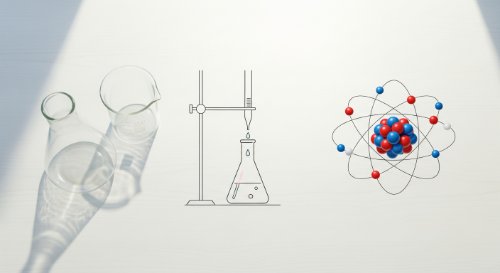Introduction to Chemistry (Undergraduate Foundation)
2 hrs

CHM 101: General Chemistry I
This learning track delivers the complete NUC CCMAS curriculum for General Chemistry I. It is a comprehensive programme designed to build a robust, university-level foundation in modern chemistry. The track systematically covers all essential topics, from atomic theory, chemical bonding, and the states of matter, to the quantitative principles of stoichiometry, equilibrium, thermodynamics, and kinetics.
This programme is for first-year undergraduates in science, technology, engineering, and mathematics (STEM) faculties who are required to take CHM 101. It is also essential for any student or professional globally who needs a rigorous and complete foundation in first-year university chemistry for further study or career development.
This track delivers a full skill set in chemical theory and quantitative problem-solving. Graduates will be able to determine molecular structures, calculate reaction quantities, analyse the energetics and rates of reactions, and solve complex equilibrium problems. This programme provides the non-negotiable prerequisite knowledge for all subsequent chemistry courses and for any degree in the physical sciences, engineering, or medicine.
CHM 101: General Chemistry I
This learning track delivers the complete NUC CCMAS curriculum for General Chemistry I. It is a comprehensive programme designed to build a robust, university-level foundation in modern chemistry. The track systematically covers all essential topics, from atomic theory, chemical bonding, and the states of matter, to the quantitative principles of stoichiometry, equilibrium, thermodynamics, and kinetics. This programme is for first-year undergraduates in science, technology, engineering, and mathematics (STEM) faculties who are required to take CHM 101. It is also essential for any student or professional globally who needs a rigorous and complete foundation in first-year university chemistry for further study or career development. This track delivers a full skill set in chemical theory and quantitative problem-solving. Graduates will be able to determine molecular structures, calculate reaction quantities, analyse the energetics and rates of reactions, and solve complex equilibrium problems. This programme provides the non-negotiable prerequisite knowledge for all subsequent chemistry courses and for any degree in the physical sciences, engineering, or medicine.
Course Chapters